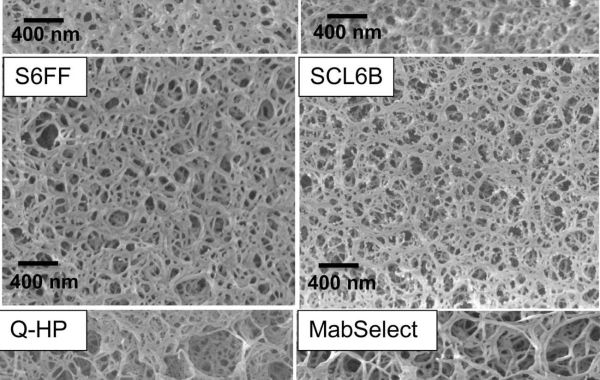With years of experience in the pharmaceutical and life science sectors, CD Bioparticles announces the availability of its new line of Basic Agarose Particles for efficient biomolecule separation. These versatile, unmodified agarose microspheres offer researchers a powerful tool for various applications, including protein purification, negative controls in experiments, and the foundation for further functionalization.
Basic agarose particles are non-preactivated agarose microspheres. The unmodified and unactivated particles are useful for removing proteins and other samples containing components that bind non-specifically to agarose, thereby reducing background signal and non-specific binding in IP and Co-IP experiments. They can also be used as negative controls to distinguish between specific and non-specific interactions.
Agarose derivatives are ideal supports for affinity chromatography, ion exchange chromatography and hydrophobic interaction chromatography. Cross-linked agarose particles are high-density agarose particles with more cross-linked polysaccharide chains. As a result, they have significantly improved chemical stability and physical properties and can withstand higher pressures. These particles provide researchers with a powerful toolkit to enhance their experiments and accelerate scientific discovery.
Committed to advancing bio-research with innovative solutions, CD Bioparticles offers a variety of Basic Agarose Particles for efficient separations, including 1) Control Agarose Particles, 4% cross-linked, unmodified for use as negative controls or to remove proteins and other non-specifically bound sample components in IP and Co-IP assays, and 2) High Flow Agarose Particles, with a maximum linear velocity of up to 1000 cm/h at 15 cm bed height and a maximum working pressure of up to 300 kPa, suitable for high pressure separations such as FPLC and HPLC.
Non-crosslinked and highly crosslinked basic agarose particles with different particle sizes and agarose contents are also available upon request. In addition, CD Bioparticles offers autoclavable basic agarose particles that can withstand temperatures up to 120°C. With a broad fractionation range from 10 kDa to 4000 kDa, these particles exhibit low non-specific adsorption due to removing charged impurities from refined agarose. Their particle size spans 45 µm to 200 µm, ensuring high recovery rates and multiple reuses.
These versatile particles, meticulously crafted by CD Bioparticles’ experienced team, empower researchers across diverse fields with precision and reliability. They can serve as essential tools for pre-clearing protein samples, reducing background signal and nonspecific binding in immunoprecipitation (IP) and co-immunoprecipitation (Co-IP) assays. Additionally, these particles act as negative controls, distinguishing specific from nonspecific interactions. When further functionalized, agarose particles become supports for affinity chromatography, ion exchange chromatography and hydrophobic interaction chromatography. Researchers can tailor the functionality of agarose beads to suit specific applications.
CD Bioparticles offers versatile Basic Agarose Particles for efficient isolation and purification of biological macromolecules. For more information and to explore the full range of new products, please visit CD Bioparticles at https://www.cd-bioparticles.com/products/basic-agarose-particles-1064.html.
About CD Bioparticles
CD Bioparticles is a leading manufacturer and supplier of various nanoparticles, microparticles, and coatings for RD as well as commercialization across different application areas, including in vitro diagnostics, biochemistry, cellular analysis, cell separation, and immunoassay. The company also offers various custom services, including chemical surface-functionalization, fluorescent modification, antibody immobilization, as well as nucleic acid and oligo conjugation to meet client specifications.








